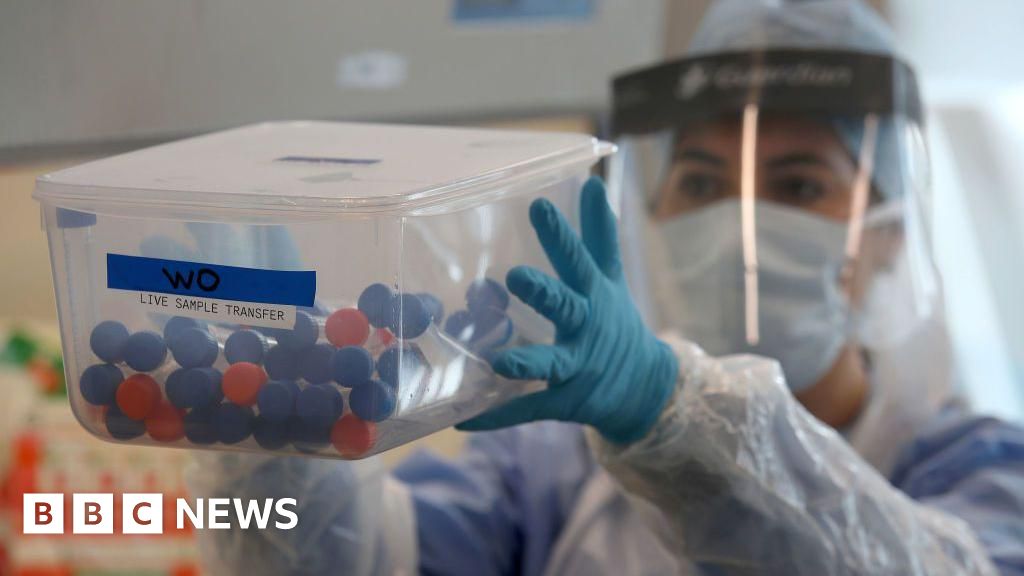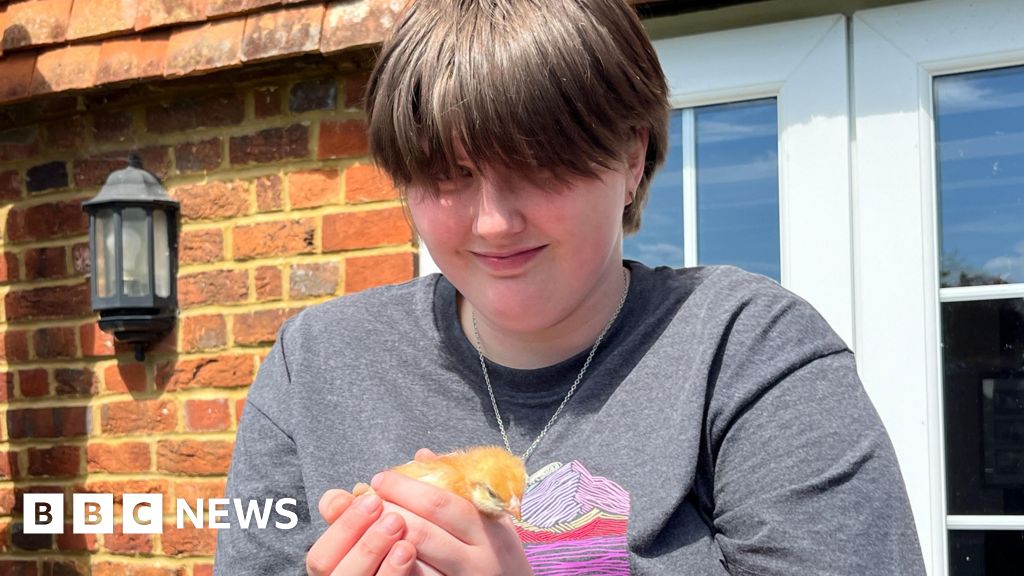ARTICLE AD BOX
By Michelle Roberts
Health editor, BBC News online
The Oxford-AstraZeneca vaccine has been linked to very rare cases of blood clots.
The chance of this happening to an individual is still extremely low, but as a precaution, younger age groups in the UK are being offered alternative vaccines.
What's happened?
Some recently immunised people have suffered unusual clots, including a type in the brain called cerebral sinus vein thrombosis (CSVT).
This is not proof that the vaccine is to blame. Covid infection itself can also make clots more likely and they can occur naturally too.
Experts stress the benefits of vaccination outweigh the risks for the vast majority of people, but is more finely balanced for younger adults.
As a precaution, regulators are continuing to monitor the situation and advise symptoms, such as unusual bruising or persistent headache after vaccination, should prompt a medical check.
And adults under 40 in the UK will be offered a different Covid vaccine.
How do we know a vaccine is safe?
Safety trials begin in the lab, with tests and research on cells and animals, before moving on to human studies.
The principle is to start small and only move to the next stage of testing if there are no outstanding safety concerns.
What role do trials have?
If the safety data from the labs is good, scientists can check the vaccine or treatment is effective.
That means tests on large numbers of volunteers - about 40,000 in the case of Pfizer-BioNTech, the first to be approved in the UK.
Half are given the vaccine and the other half a placebo jab. The researchers and participants are not told which group is which, until after the results, to avoid bias.
All of the work and findings are checked and verified independently.
The Covid vaccine trials happened at breakneck speed, but they didn't skip any steps - they were able to move faster because so many people were involved and other projects were put aside.
What is the fast-track approval for vaccines against new variants?
Scientists hope to tweak coronavirus vaccines to ensure they continue to offer high protection as new variants of the disease emerge.
The UK's drug regulator says new vaccines can be fast-tracked for approval if needed.
No corners will be cut, with safety paramount.
But lengthy clinical trials with thousands of volunteers will not be needed.
Instead, data from existing studies and ongoing real-world use could be used.
Will the vaccine give me side effects?
Vaccines do not give you a disease. Instead, they teach your body's immune system to recognise and fight the infection they have been designed to protect against.
Some people do experience mild to moderate symptoms after being vaccinated. This is not the disease itself, but the body's response to the vaccine.
Common reactions that may affect more than one in 10 people and typically get better within days include chills, tiredness and aching muscles.
Who approves vaccines or treatments?
Approval is only given in the UK if the regulator is happy that a vaccine is safe and effective.
Checks continue after approval to make sure there are no further side effects or long-term risks.
Independent experts on the Joint Committee on Vaccination and Immunisation decide how best to use a vaccine and who should get it.
What's in the Covid vaccines?
Pfizer-BioNTech's vaccine (and Moderna's) uses bits of genetic code to cause an immune response. These are called mRNA vaccines.
They do not alter human cells, but merely present the body with instructions to build immunity to Covid.
The Oxford-AstraZeneca vaccine uses a harmless virus altered to look a lot more like the pandemic virus.
Vaccines sometimes contain other ingredients, like aluminium, that make the vaccine stable or more effective.
What about allergies?
Allergic reactions to vaccines are rare. For any approved vaccine, the ingredients are listed.
There have been serious but treatable allergic reactions in a very small number of people given the Pfizer-BioNTech vaccine.
As a precaution, the MHRA says people with a history of significant allergic reactions to any of the ingredients in this vaccine should not currently have this jab.
Be aware that anti-vaccine stories are spread online through social media. These posts are not based on scientific advice (or blend facts with misinformation).
What if I've already had Covid?
People will still be offered the jab even if they have had Covid-19 in the past.
That's because natural immunity may not be long-lived and immunisation could offer more protection.
Guidance says there are no safety concerns about giving jabs to people with "long" Covid either. But people who are currently unwell with Covid-19 should not receive the vaccine until they have recovered.
How animal-friendly are vaccines and do they contain alcohol?
Some vaccines, such as the shingles vaccine and the children's nasal flu vaccine, can contain pork gelatine.
The Covid vaccines from Pfizer, Moderna and AstraZeneca do not contain this, or any other animal products.
The British Islamic Medical Association says there is negligible alcohol in it - no more than in bread, for example.

 4 years ago
156
4 years ago
156








 English (US) ·
English (US) ·